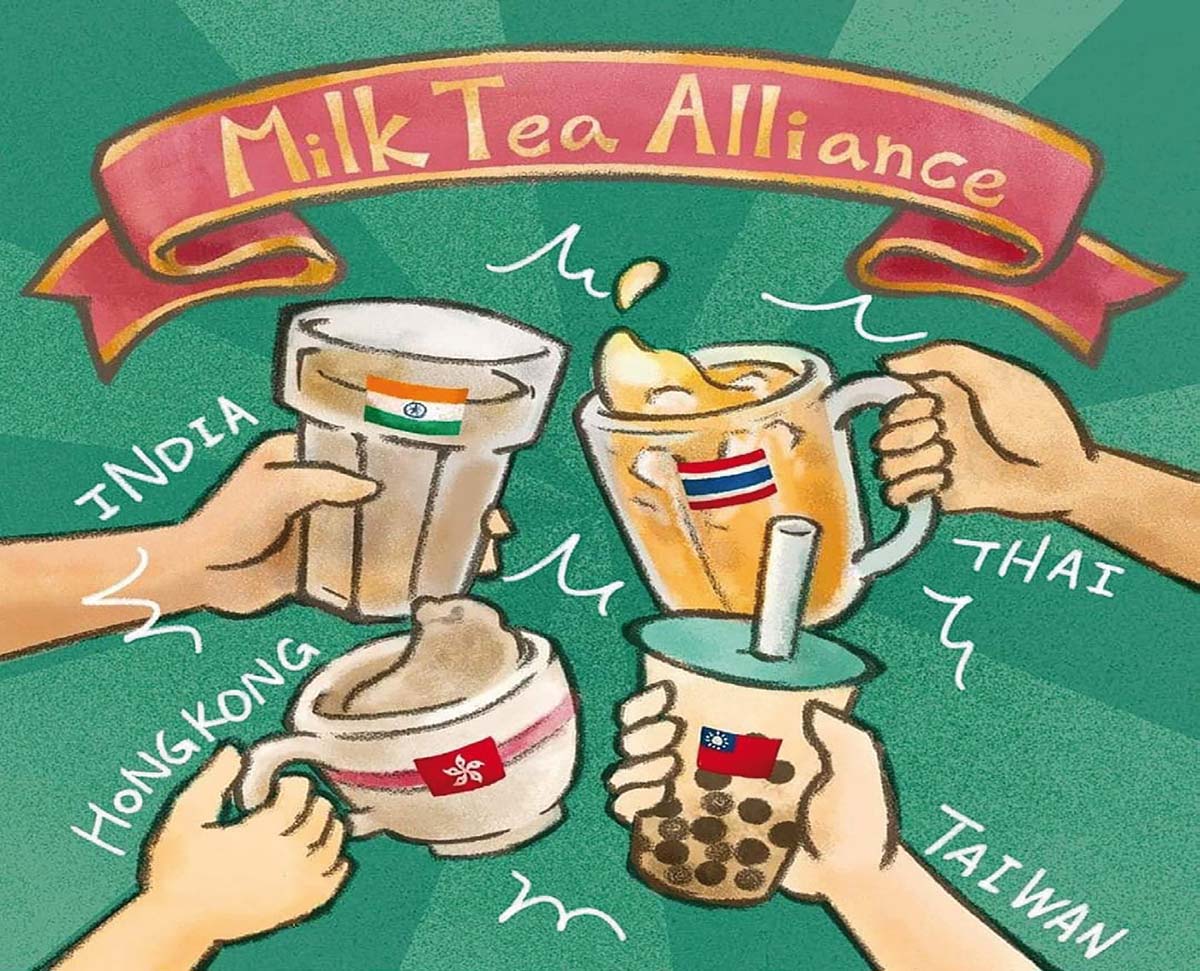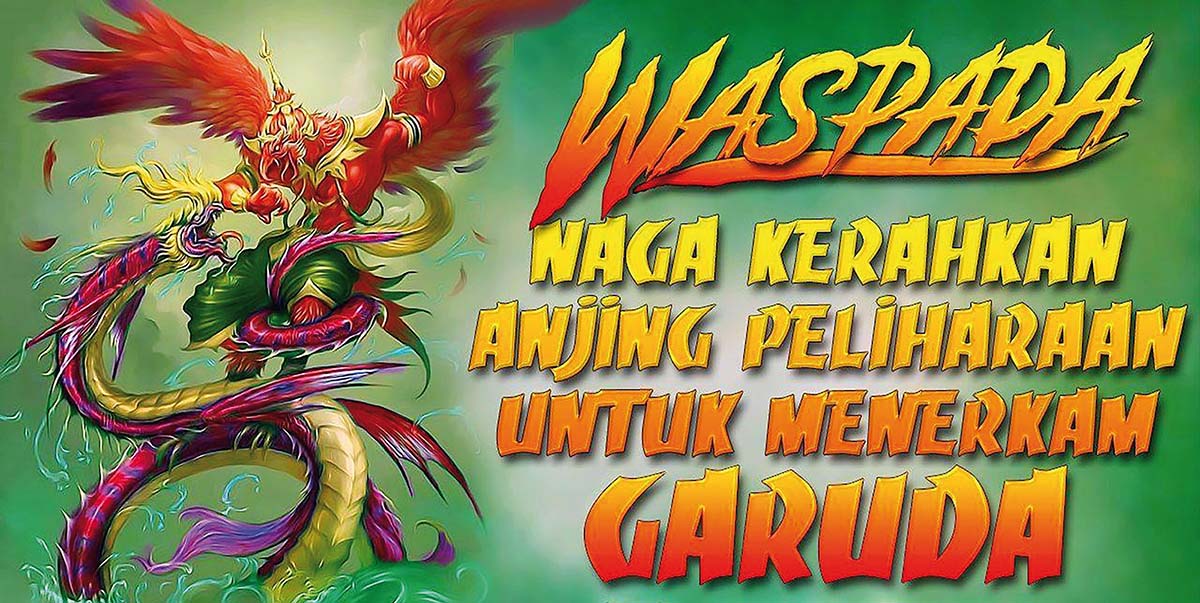The Milk Tea Alliance and China’s Soft Power Problem in Southeast Asia
This article is adapted from the Fulcrum article, ”The Milk Tea Alliance Confronts China’s Weak Brew.” 1
After a shock election victory in 2018, the resurgent prime minister of Malaysia, Mahathir Mohamad, banned foreigners from owning property in Forest City, a $100 billion (USD) “megacity” being built across four artificial islands located between Singapore and the southern tip of Johor. In October 2020, after the abrupt passage of a “job creation” law in Indonesia, labour activists led strikes in the capital and stormed the national parliament complex. In March 2021, amid escalating military violence in Myanmar following the February 1st coup, South Korean and Taiwanese businesses were urged to fly their national flags. 2
On the face of it, these unpredicted events across Southeast Asia—the end of one-party rule in Malaysia, the rise of labour in Indonesia, the coup and the resistance in Myanmar—have nothing in common. They are disparate events, with local causes. But on closer inspection they share a common undercurrent. They all exhibit signs of anxiety about China and its rise as a hegemonic power in Southeast Asia. Look closely at protests and upheavals across the region and you are increasingly likely to find a China angle.
Anti-Chinese “sentiment”, to use the scholarly euphemism, has a deep history in Southeast Asia. And not just against the local ethnic Chinese. In the aftermath of the 1965 coup that brought General Suharto to power in Indonesia, the embassy of the People’s Republic of China was ransacked by a mob. But as China establishes itself as the lead economic partner for most countries of the region, and as it extends its military power down through the South China Sea and up into the internet “cloud”, racial prejudice shades into geopolitical angst.

Fig. 1: Milk Tea Alliance illustration.
The lead indicator of this phenomenon is the Milk Tea Alliance, an online pan-Asian activist network. The alliance began on social media, born of a rapid process of variation and selection for a meme that would be algorithmically optimised to go viral. Pro-democracy activists in Hong Kong, Thailand, and Taiwan led this process as they networked in retaliation against nationalist Chinese trolls. It was an authentic “meme war”. The meme has since been inherited by the resistance movement in Myanmar, and flowed to a lesser degree to Malaysia, the Philippines, and Indonesia.
Strategic thinkers in boardrooms with ancient maps and new flatscreens, in Beijing and in Washington, are unlikely to pay much heed to a movement calling itself the Milk Tea Alliance. But that would be a mistake. On the internet, humor builds in-group identity, and irony maintains strategic ambiguity—a hedge against the risk of being “cancelled” by the out-group, a rival “memetic tribe.” 3
The alliance is now in the streets. It stands in solidarity amid the three-finger salutes in Bangkok, the umbrellas in Hong Kong, and the egg Molotov cocktails in Myanmar. The Milk Tea Alliance is only the latest memetic tribe to jump off the internet and into the streets. It will not be the last.
This is because there is a more fundamental force at play. That force is the internet-enabled feedback loop between institutions and the public. Online populist insurgencies can mobilise instantly and scale infinitely, swarming against sclerotic authorities. They crowd-source their viral attacks. It is inherently unpredictable.
The only way to stop this force is to unplug the internet, to shut down social media. This was the first instinct of the generals in Myanmar. They occupied the internet service providers and hacked away at the cables. But this is not the best way to “break the internet” because, in turn, it breaks the economy.
The Milk Tea Alliance is the internet’s way of channelling the collective consciousness of a region that is famously diverse and defiant of collective action—as ASEAN can attest. It taps into discontent with the regional decline of democracy and into fears about the rise of China.
At best, these fears sublimate into democratic debate; at worst, they dredge up historical prejudices and dangerous tropes. The latter occurred in Indonesia in 2019 during the post-election violence, when viral disinformation spread claiming that China sent soldiers to infiltrate the country to put down the protests and bolster the Jokowi government. 4 The Indonesian police were forced to hold a press conference to debunk the claims, which had targeted several Indonesian police officers with supposedly Chinese features.
The same trope emerged in Myanmar in March, with false claims made in viral posts on Facebook that Chinese soldiers had been flown in to repress the protest movement. 5 The balance of evidence suggests that China did not support the coup in Myanmar—not least because the government of Aung San Suu Kyi was relatively pro-Beijing. But suspicions ran high online anyway, lending an anti-China edge to the protests. Later, Chinese factories in Yangon were burned by unknown assailants, hence the call by non-Chinese foreigners to fly their flags.

Fig. 2: Indonesian anti-Chinese propaganda: “Beware the dragon ordering its domesticated dogs to pounce on the Garuda” (Source: Telegram).
As China rises, we should expect anti-Chinese populism to grow, as old fears blend with new anxieties. Opinion polling by the Pew Research Centre indicates unfavourable views of China spiked globally even prior to the pandemic. 6 The 2001 ISEAS State of Southeast Asia survey of policymakers, academics, think tankers, and businesspeople shows that support for aligning with China versus the US has fallen, despite China’s intense pandemic diplomacy efforts. 7
While most countries of Southeast Asia wish to benefit from economic ties with China, domestic populations are at best sceptical of China’s role. China thus suffers a gap between its hard (military, economic) and soft (cultural) power in Southeast Asia. Leading indicators of this power gap can be detected in the protests that gather force online, where soft power is in the hands of digital natives, not political elites.
To the extent that China’s power gap reflects an elite-popular divide, China is left vulnerable to populist politics in Southeast Asia. Insurgent politicians may seek to exploit anti-China sentiment to gain office—a trend that has emerged most clearly in Indonesia among the Islamist opposition.
Time will tell whether protests in Southeast Asia cohere into democratic movements or devolve into anti-Chinese populism. Outcomes will be determined, in part, by how old institutions respond to the challenge of networked protest in the internet age.
Quinton Temby is a Visiting Fellow at the ISEAS-Yusof Ishak Institute in Singapore, quinton_temby@iseas.edu.sg